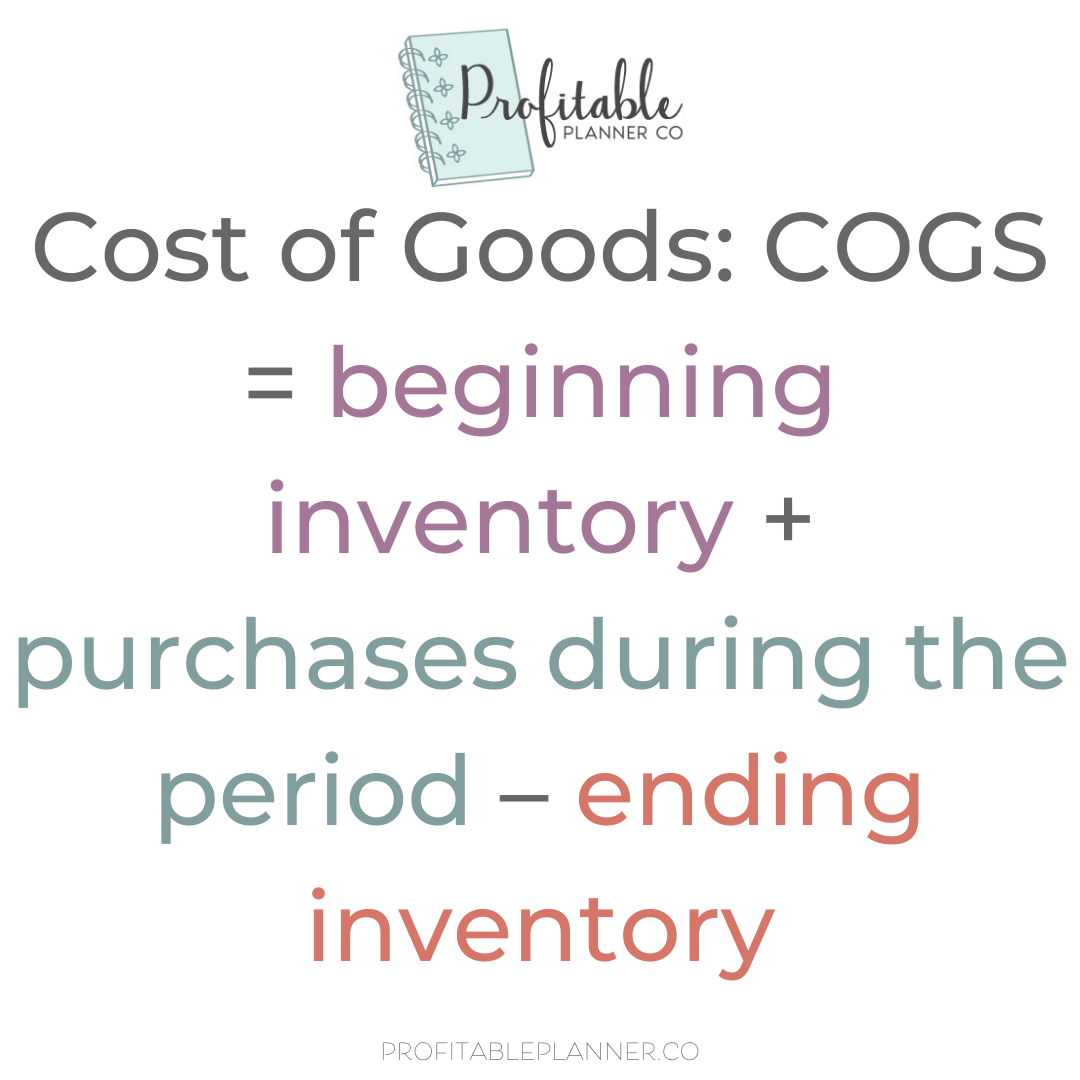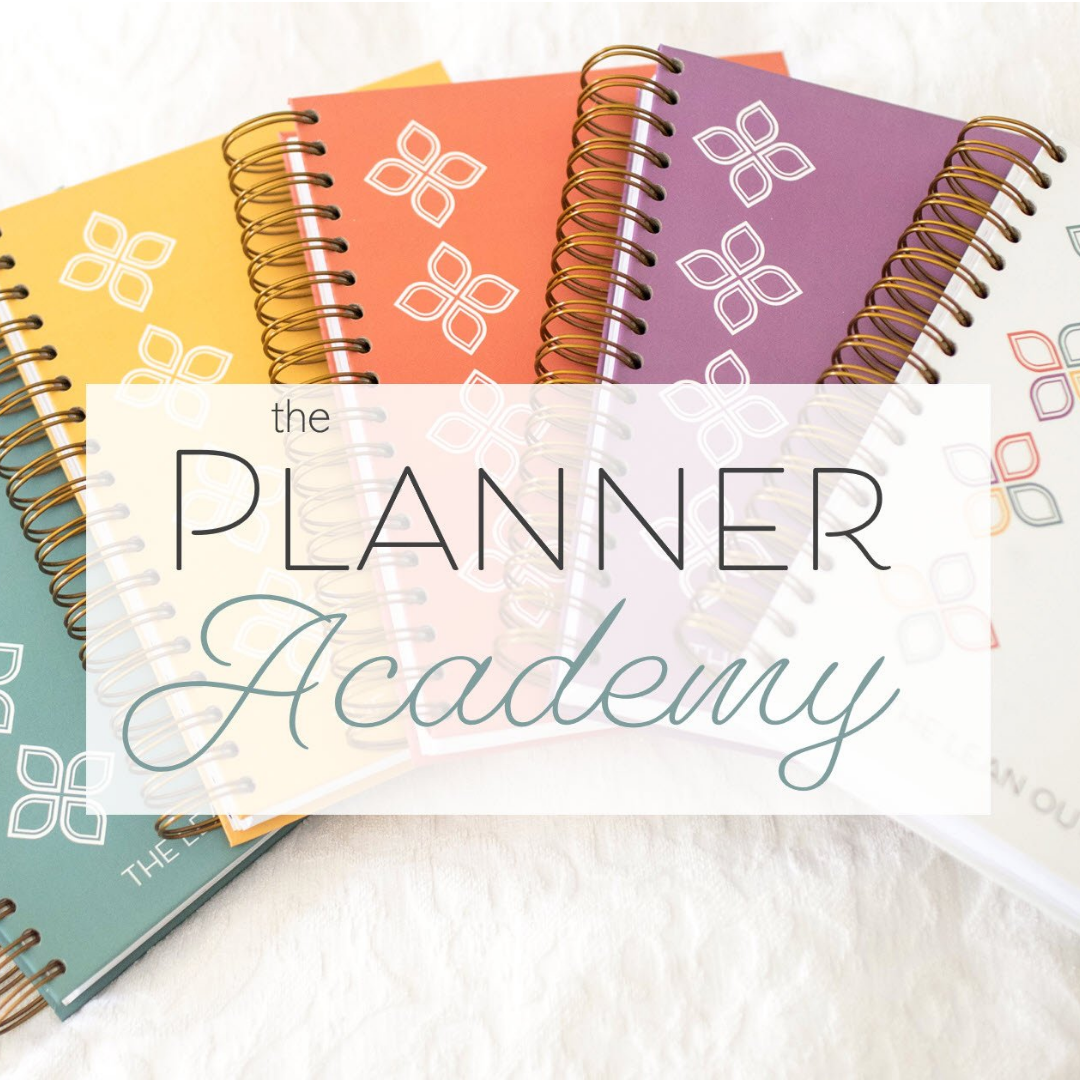
Selling physical products is very different from selling digital products. They can be highly profitable and successful but there are some important things that can often get overlooked if you aren’t familiar with producing, selling, and shipping tangible products (even if you have someone else doing fulfillment for you).
The most important thing is to make sure you know your COGs - cost of goods sold. If you are unfamiliar with COGs, google it and be sure you understand all of the costs that go into your planner.
A basic formula to look at for your COGS is as follows: COGS = beginning inventory + purchases during the period – ending inventory

Because while most people think of their “costs” as the cost of the planner from your printer, there is actually much more that goes into your costs than that.
Identify Direct and Indirect Costs:
Step 1: Differentiate the direct costs, which are included in the COGS calculation, from indirect costs, which are not.
Direct costs are the costs tied to the production or purchase of a product. Some examples would be:
- Direct labor
- Direct materials
- Manufacturing supplies
Indirect costs go beyond costs tied to the production of a product. Some examples would be:
- Utilities
- Marketing campaigns
- Office supplies
Step 2: Determine Beginning Inventory
Keep in mind that your beginning inventory cost for that time period should be exactly the same as the ending inventory from the previous period.
Step 3: Tally Up Items Added to Your Inventory
It’s important to keep track of the cost of shipment and manufacturing for each product, which adds to the inventory costs during the period.
Step 4: Determine Ending Inventory
The ending inventory is the cost of merchandise leftover in the current period. It can be determined by taking a physical inventory of products or estimating that amount.
Step 5: Plug It Into the Cost of Goods Sold Equation
You want to take your full COGs into consideration when determining your pricing or you the run the risk of not being profitable.
There are other considerations as well and I dive into everything you need to know inside the Planner Academy, and I even include a calculator and training module to ensure you hit your target prices and profit margins.
But COGs are the most important one to understand before you set your pricing. It’s even better if you do what we discuss in the webinar and start with the end in mind and know what your COGs should be before you ever talk to a printer.
If you have been anxiously awaiting the release of the digital version of the Lean Out Planner - it's here! Designed to be used on iPad or your Android tablet with pencil, check out the new digital planner and get yours.
Have other questions about creating a planner?
Inside our Planner Academy, you get access to both a packed curriculum AND weekly Q&A calls where we discuss everything you could possibly need to know about creating, designing, printing, and selling a planner. Here’s a few of the questions we recently covered in one of our Q&A calls:
- What to include and exclude to keep costs low and quality high
- How to add embellishments like tear-offs and tabs cost-effectively
- A big mistake people make when selecting their printer that keeps them stuck and having to charge way more than they wanted for their planner
- When to launch the planner for maximum sales potential
- The 2 pieces that take the longest and how to fast track them
- The behind-the-scenes process I followed to create my Lean Out Planner

There's a lot more inside the Planner Academy too - check it out to learn more.
Want to learn how to scale your business with a planner?
Then you want to watch my free masterclass where I share:
- The top 5 mistakes people make when creating a Planner, Workbook, or Journal for their business
- How a planner can be leveraged to help you scale an existing coaching, consulting, or service-based business
- How to get your planner created in the next 90 days
Click here to register for instant access to the masterclass.
by Crista Grasso
Crista Grasso is the go-to strategic planning expert for leading global businesses and online entrepreneurs when they want to scale. Known as the "Business Optimizer", Crista has the ability to quickly cut through noise and focus on optimizing the core things that will make the biggest impact to scale a business simply and sustainably. She specializes in helping businesses gain clarity on the most important things that will drive maximum value for their clients and maximum profits for their business. She is the creator of the Lean Out Method, 90 Day Lean Out Planner, and host of the Lean Out Your Business Podcast.




